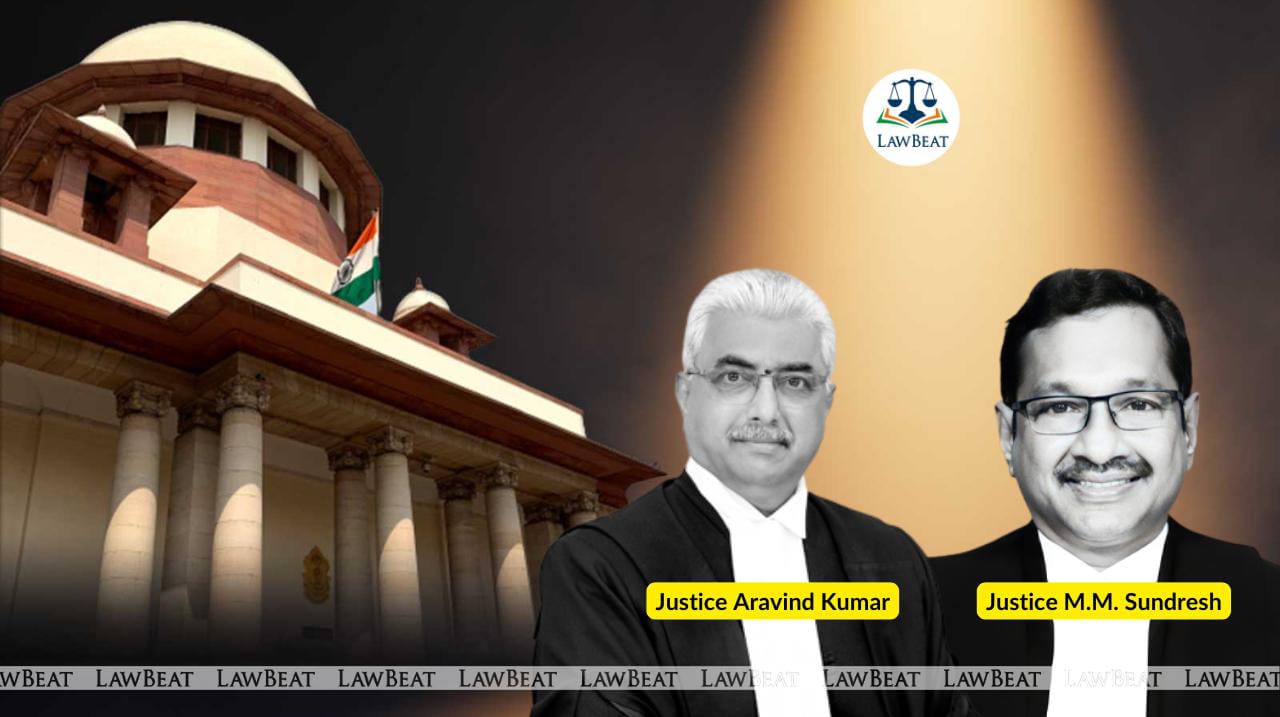No total embargo on anticipatory bail even after proclamation order: SC

In the event of the declaration under Section 82 of the CrPC, it is not as if in all cases that there will be a total embargo on considering the application for the grant of anticipatory bail, court said
The Supreme Court has clarified that a proclamation order does not automatically impose a complete bar on granting anticipatory bail to the accused in all cases.
A bench of Justices M M Sundresh and Aravind Kumar said that when the liberty of the accused is pitted against, court will have to see the circumstances of the case, nature of the offence and the background based on which such a proclamation was issued.
Court allowed anticipatory bail to one Asha Dubey, who was apprehending arrest for the offences punishable under Sections 80, 85, 108, 3(5) of the Bharatiya Nyaya Sanhita, 2023 and Sections 3 and 4 of the Dowry Prohibition Act, 1961.
The appellant was the mother-in-law of the deceased. The son of the appellant had already been arrested who was still in custody. Her counsel said that she was not residing with the deceased at the relevant point of time, she was only the mother-in-law of the deceased.
Insofar as the proceedings initiated under Section 82 of the then Code of Criminal Procedure, 1973 against the appellant were concerned, the counsel said that it was not as if there was a complete embargo to consider the application for grant of anticipatory bail.
The counsel for the State and the informant placed reliance upon the judgment of the top court in State of Madhya Pradesh Vs Pradeep Sharma (2014) and submitted that the appellant apart from non-cooperation had been declared as a proclaimed offender in terms of Section 82 of CrPC.
"There are incriminating materials to implicating the appellant. In such view of the matter, the custodial interrogation is required", they said.
The court also noted that the relationship between the appellant and the deceased was not in dispute. Admittedly, the son of the appellant had been arrested and he was still in custody. It is incorrect to state that pursuant to the interim protection granted, the appellant was not cooperating in the investigation and in fact despite communication sent by the appellant to investigating authority, the investigating authority has not called her for joining the investigation, court said.
"Considering the facts and circumstances of the case, we are of the view that the custodial interrogation of the appellant is not required. Coming to the consideration of anticipatory bail, in the event of the declaration under Section 82 of the CrPC, it is not as if in all cases that there will be a total embargo on considering the application for the grant of anticipatory bail," the bench said.
Court thus held that it was a fit case for grant of anticipatory bail, on the condition that the appellant shall cooperate with the further investigation.
However, the court granted liberty to the respondents to seek cancellation of bail that was granted, in the event of a violation of the conditions which were to be imposed by the trial court or if there were any perceived threats against the witnesses.
The court set aside the Madhya Pradesh High Court's order of September 9, 2024 and granted anticipatory bail to the appellant.
Case Title: Asha Dubey vs. the State of Madhya Pradesh
